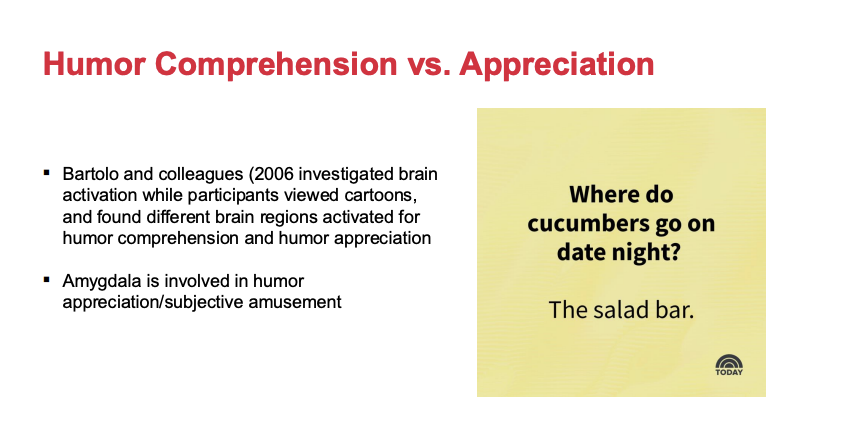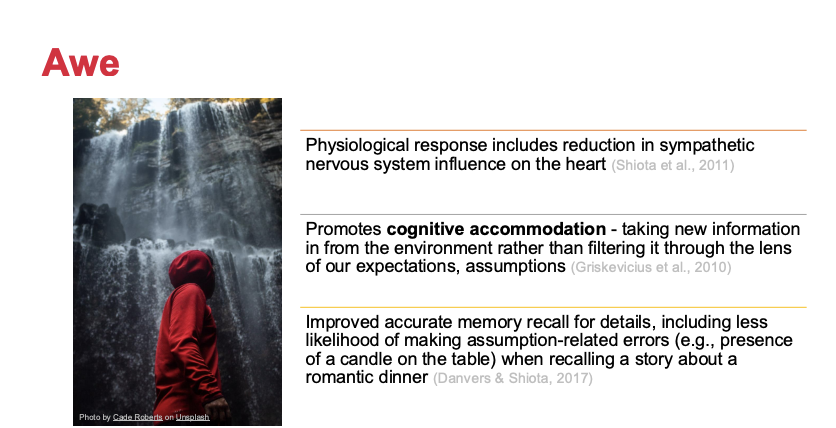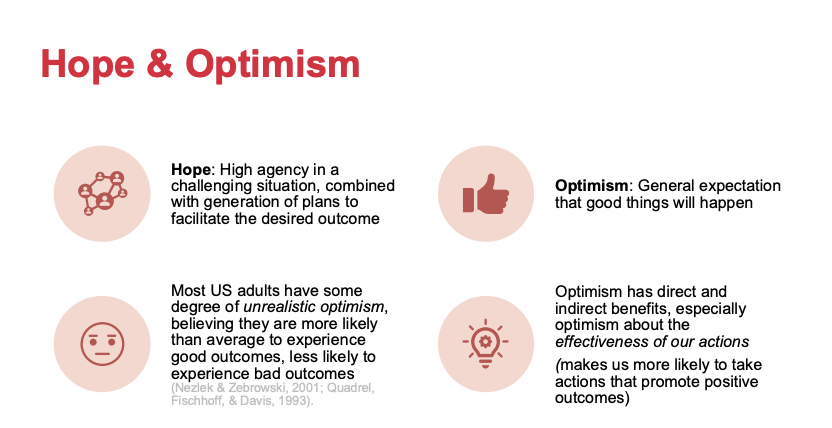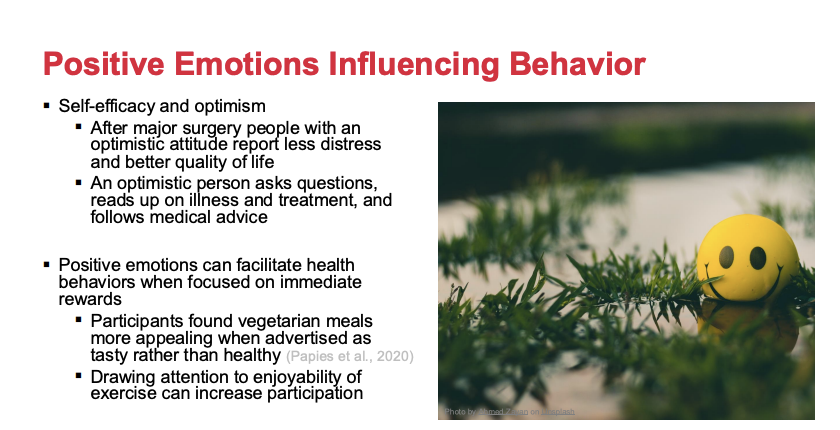Week 6 Feb. 11 - Positive Emotions
Broaden and Build Theory
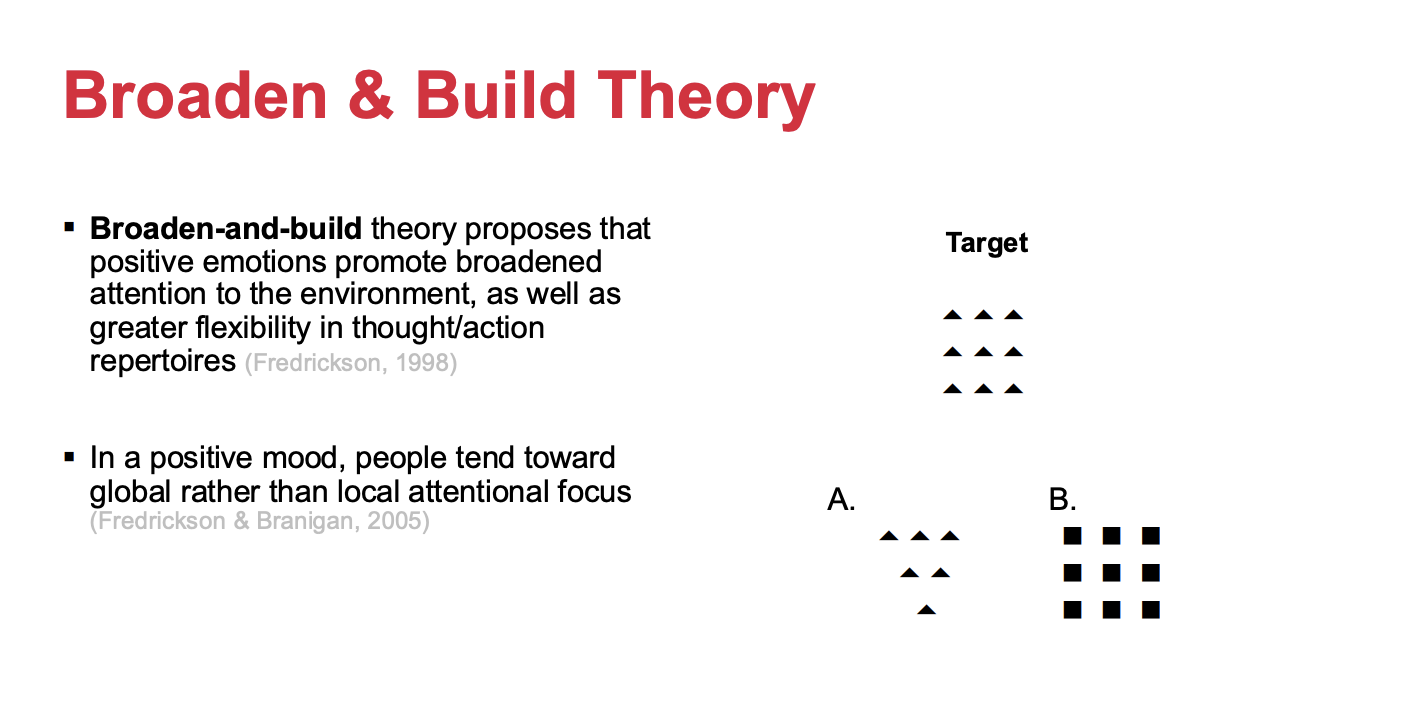
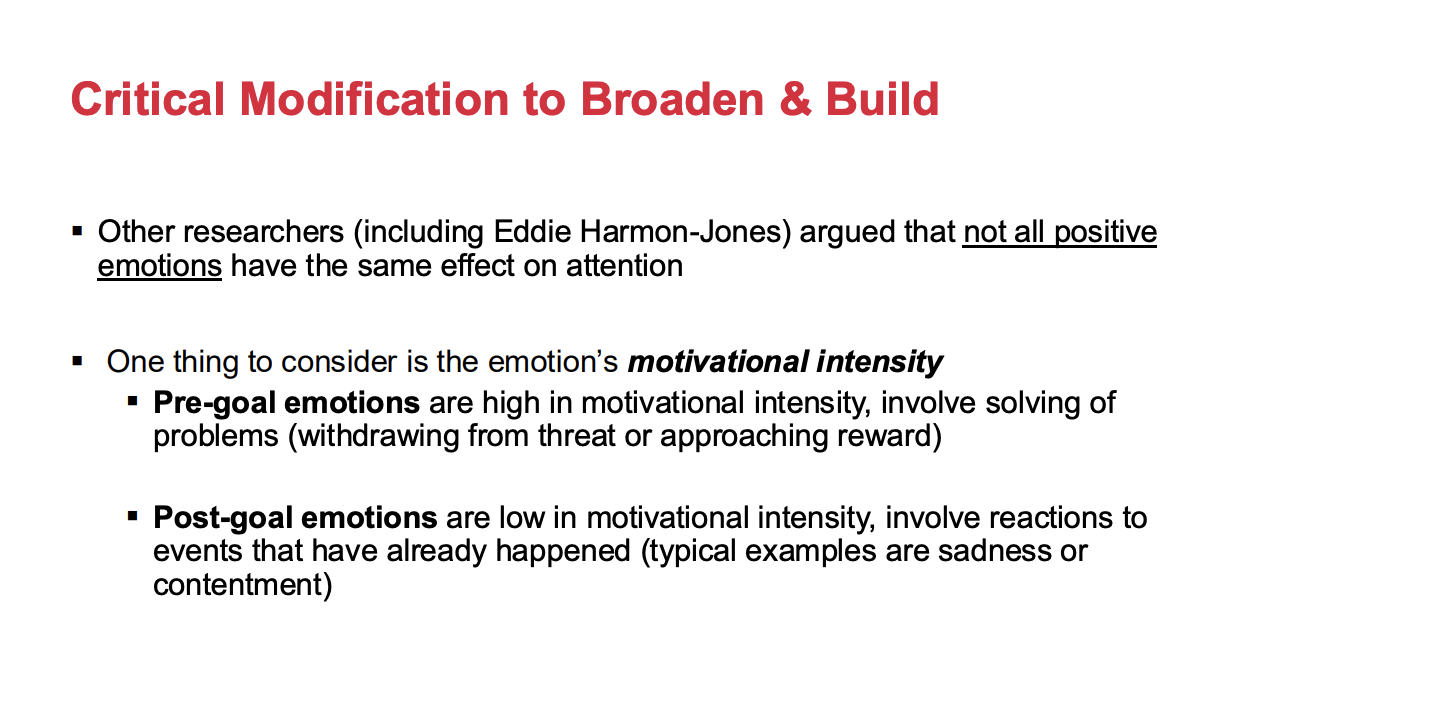
Emotions like sadness is a post goal emotions: You feel them about something that has already happened
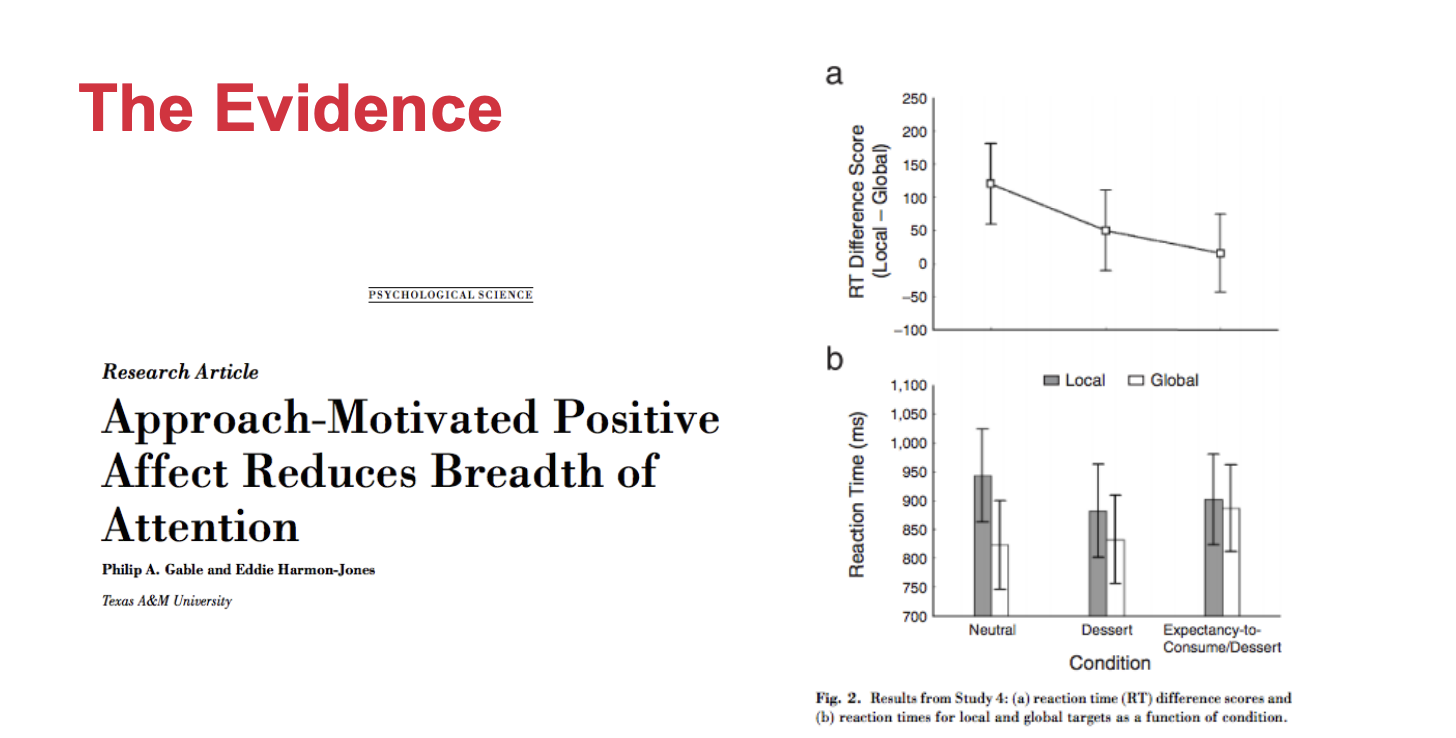
Research Question:
Do all positive emotions increase broad attention, or do some narrow attention when linked to strong motivation?
Key Idea:
Not all positive emotions work the same way:
Low motivation positive emotions (e.g., calm, relaxation) → Broaden attention.
High motivation positive emotions (e.g., desire, excitement) → Narrow attention, focusing on a goal.
Study Design:
Participants saw different images:
Desserts (cake, chocolate, cookies) → High motivation positive affect (desire)
Flowers, scenic images → Low motivation positive affect (calm)
Paper plates (neutral objects) → No strong emotion
Attention Task:
Participants completed a Global-Local Processing Task:
Broad attention → Noticing the big picture.
Narrow attention → Focusing on small details.
Results:
Desserts (high motivation positive affect) → Narrowed attention (focused on details).
Flowers (low motivation positive affect) → Broadened attention (big picture thinking).
Neutral objects (paper plates) → No effect.
Conclusions:
Excitement and desire (goal-driven emotions) make us focus more narrowly.
Calmness and relaxation help us see the bigger picture.
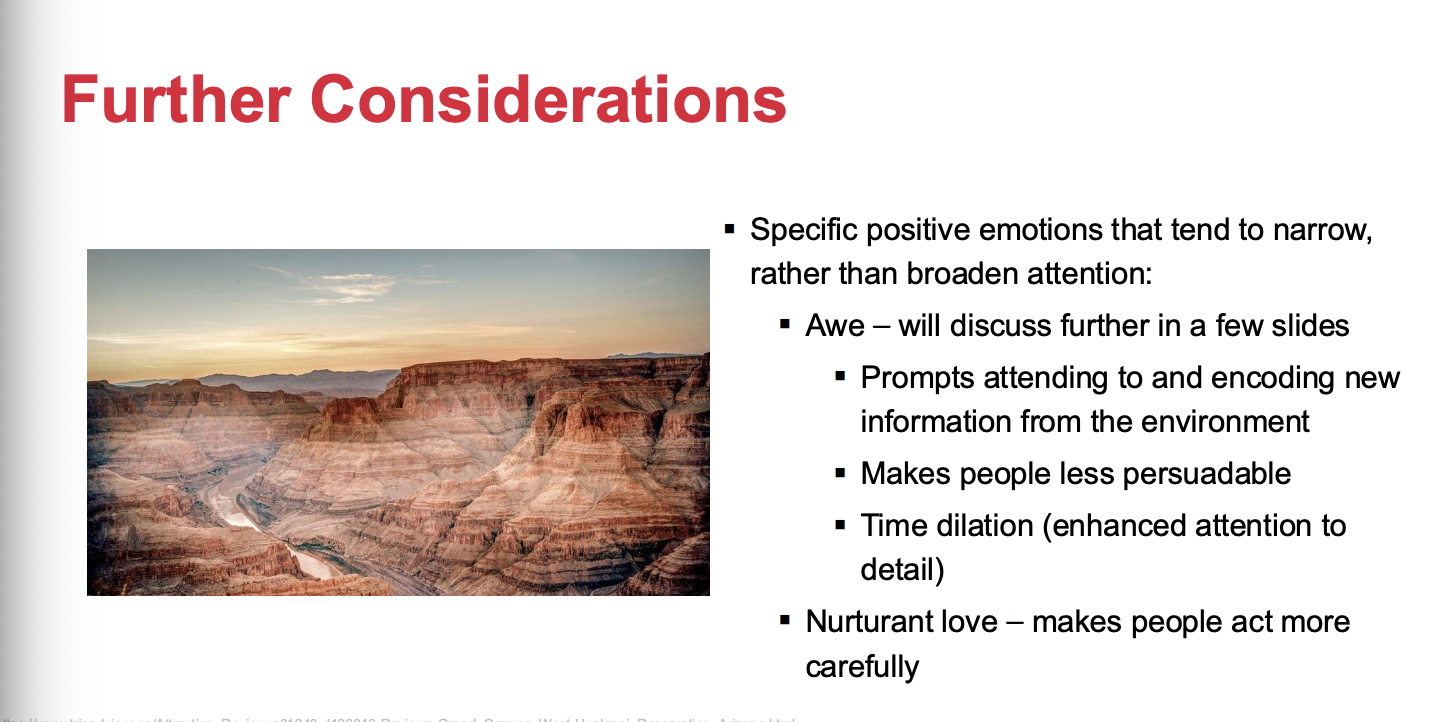
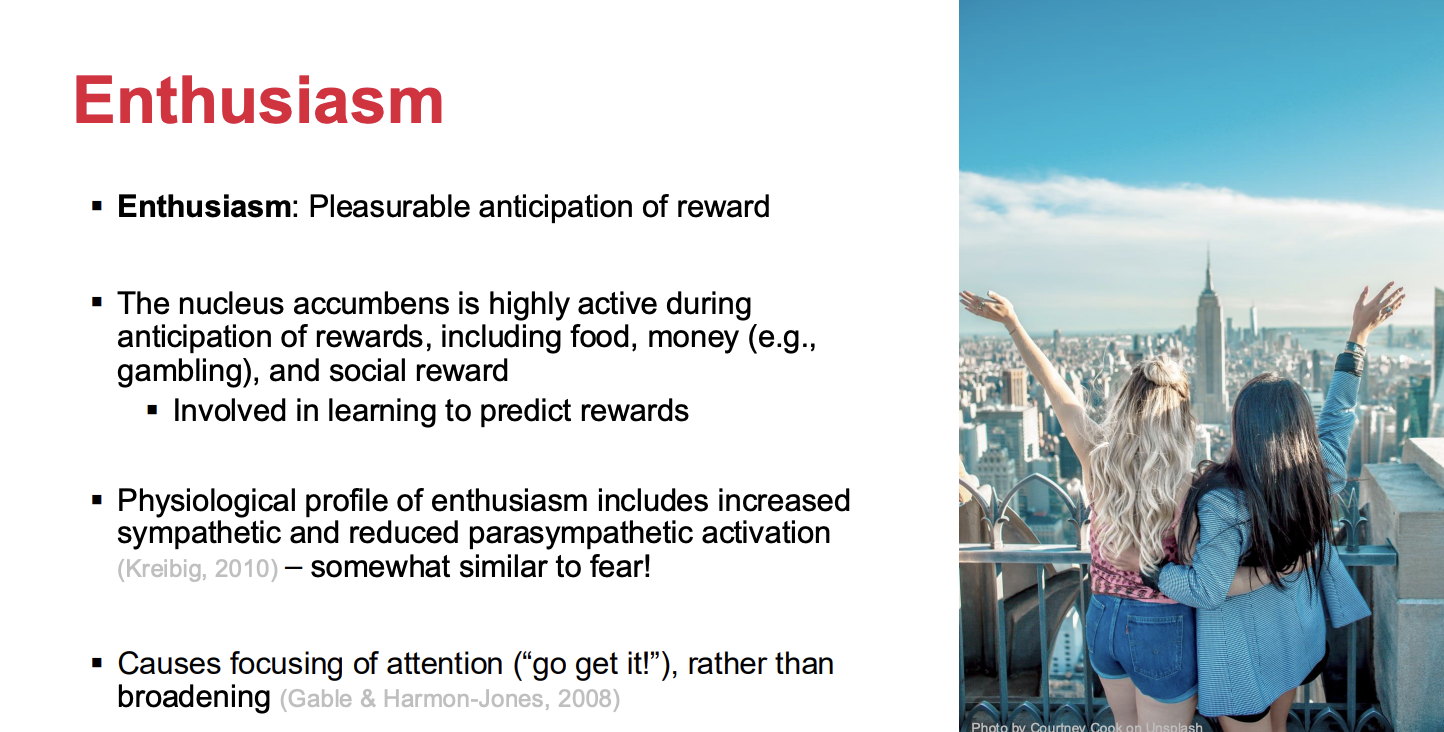
The nucleus accumbens is not just about the reward itself but learning to predict/anticipation of getting a reward
If you’re really anticipating that reward this includes the activation of increased sympathetic and reduced parasympathetic
Enthusiam - positive emotions broaden emotions
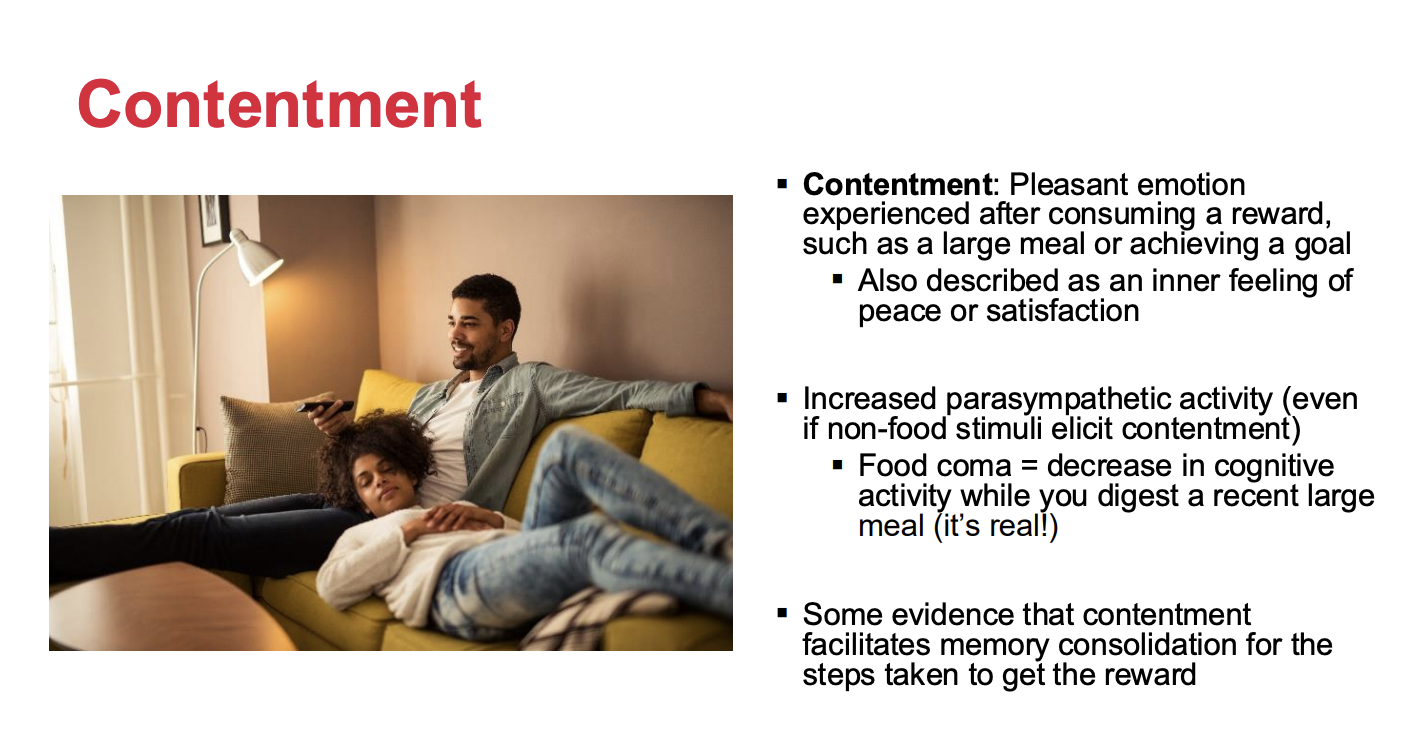
Low intensity
Increased parasympathetic activity
Contentment Memory consolidation: this state enhances the ability to retain and recall information, promoting a sense of stability and well-being
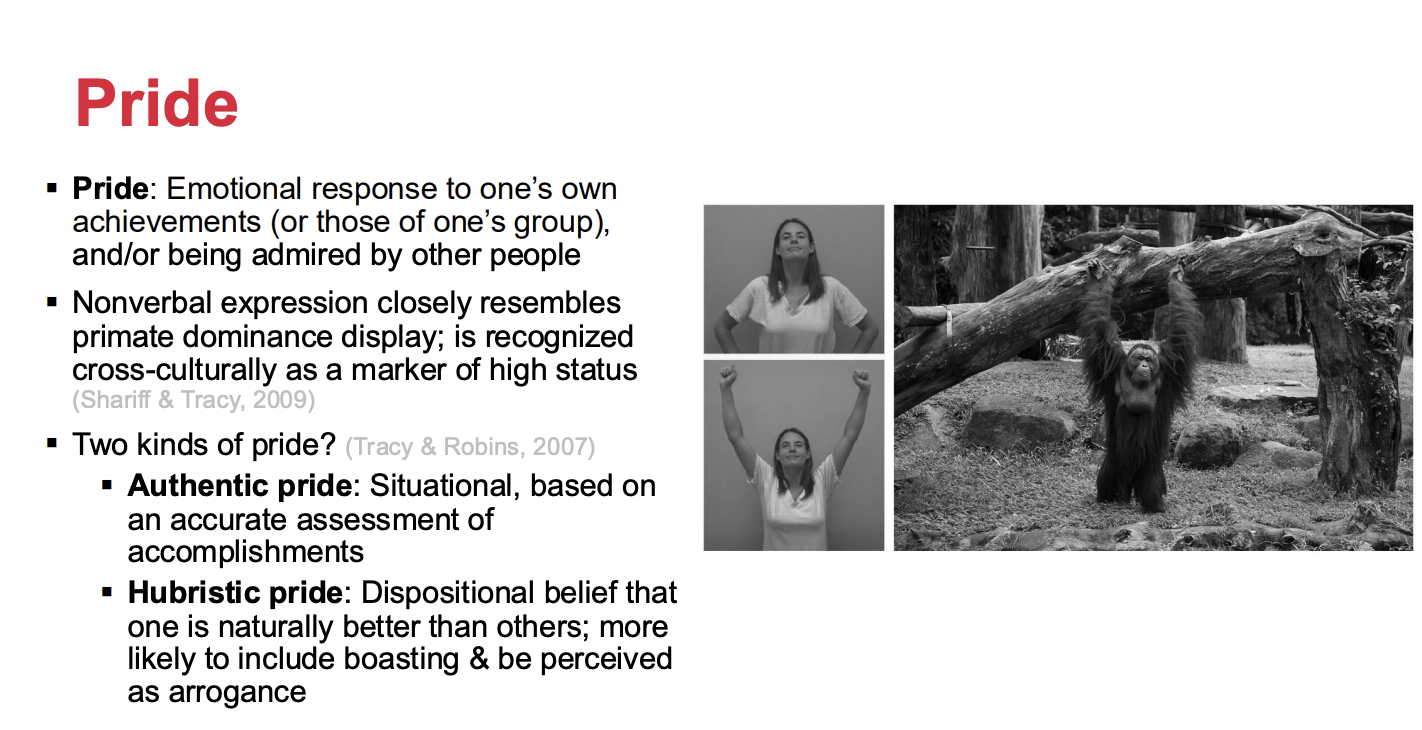
Culturally recognizable
There are multiple kinds of pride:
Authentic pride: You really are proud
Hubristic pride: Naturally better than other: boosting, “I am the best”, arrogance
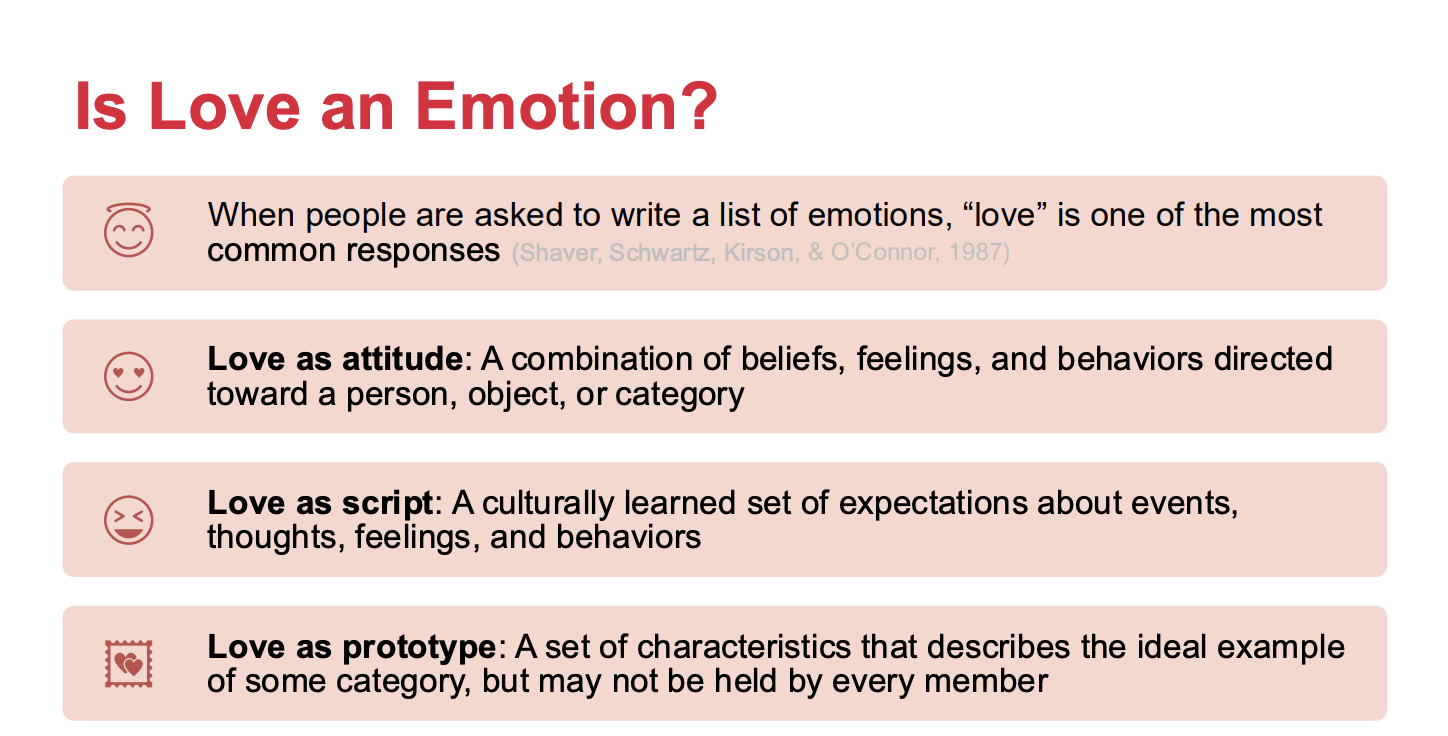
Love as attitude: How you can love your romantic partner or your mother…
Love as a prototype: When someone says love what comes to mind?
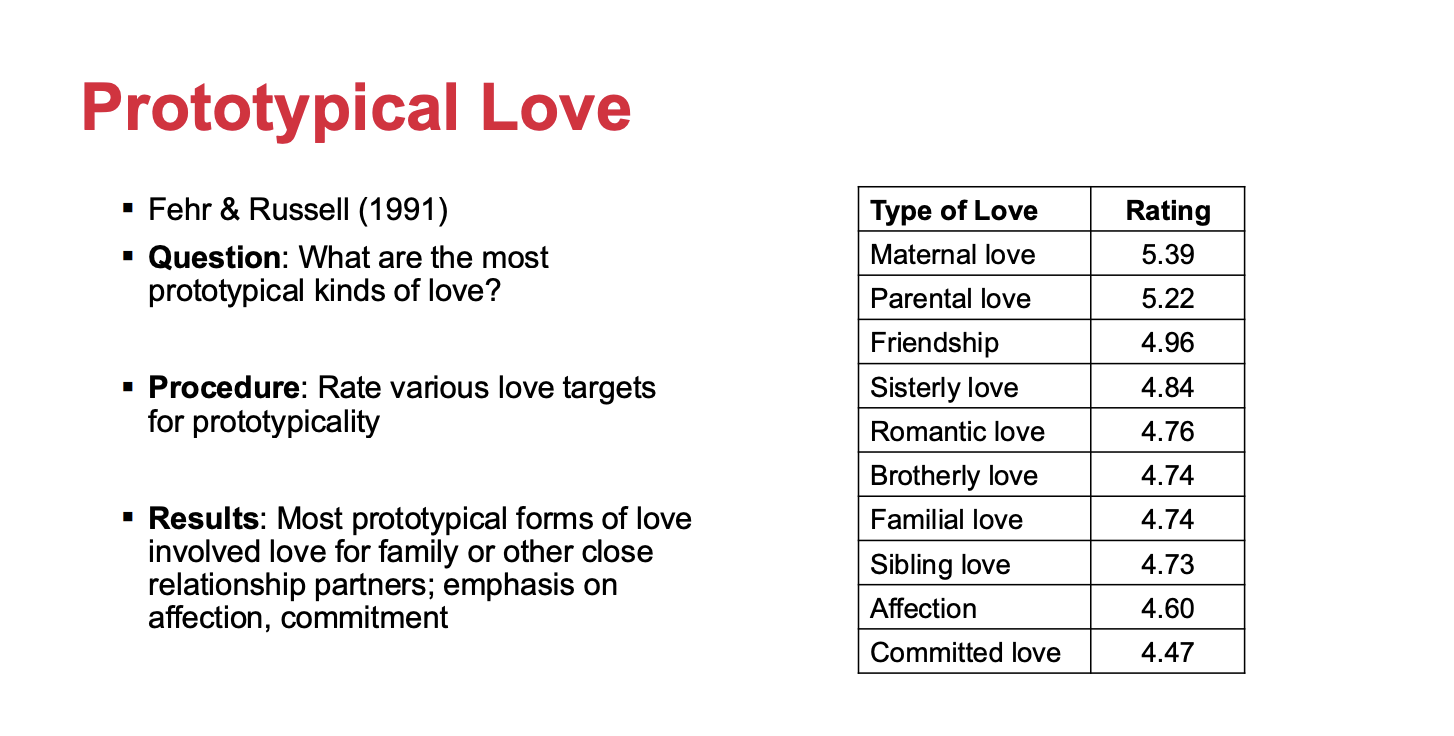
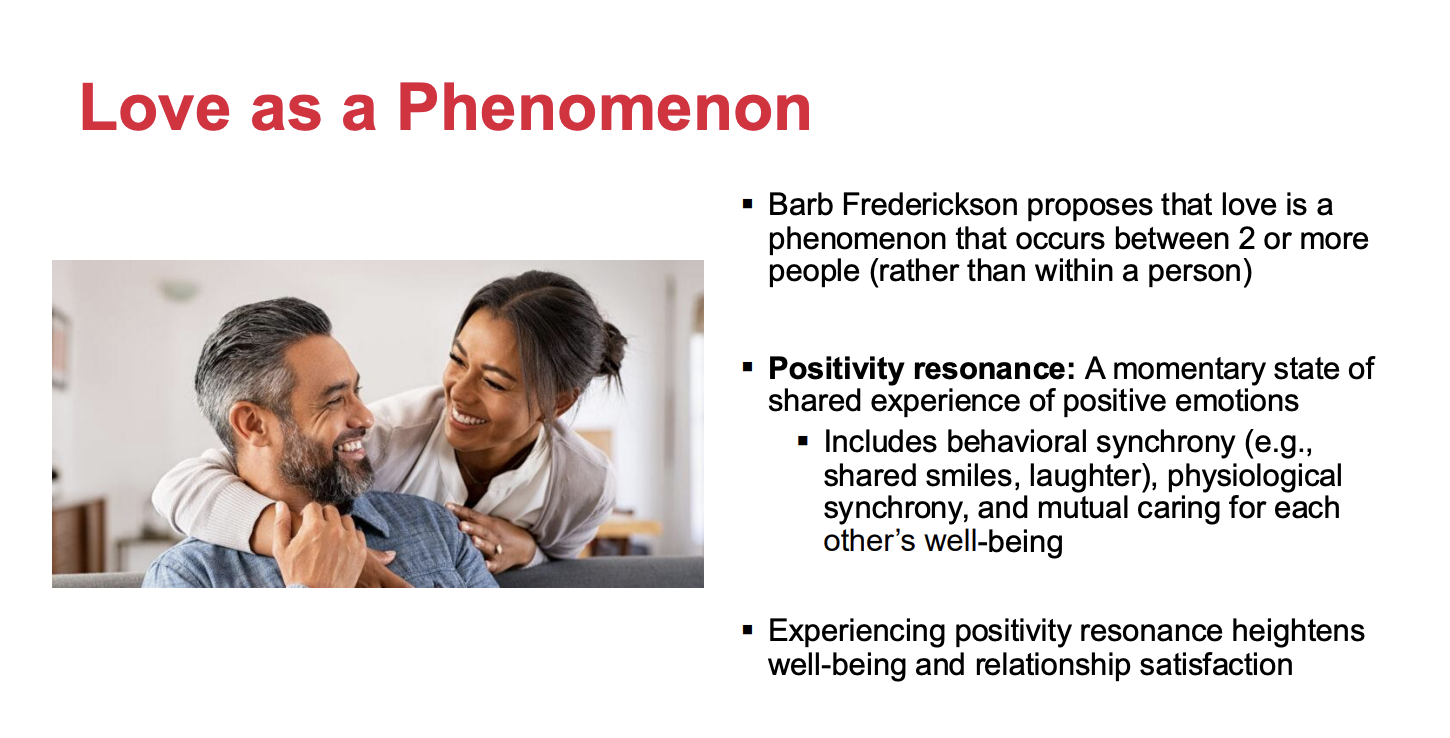
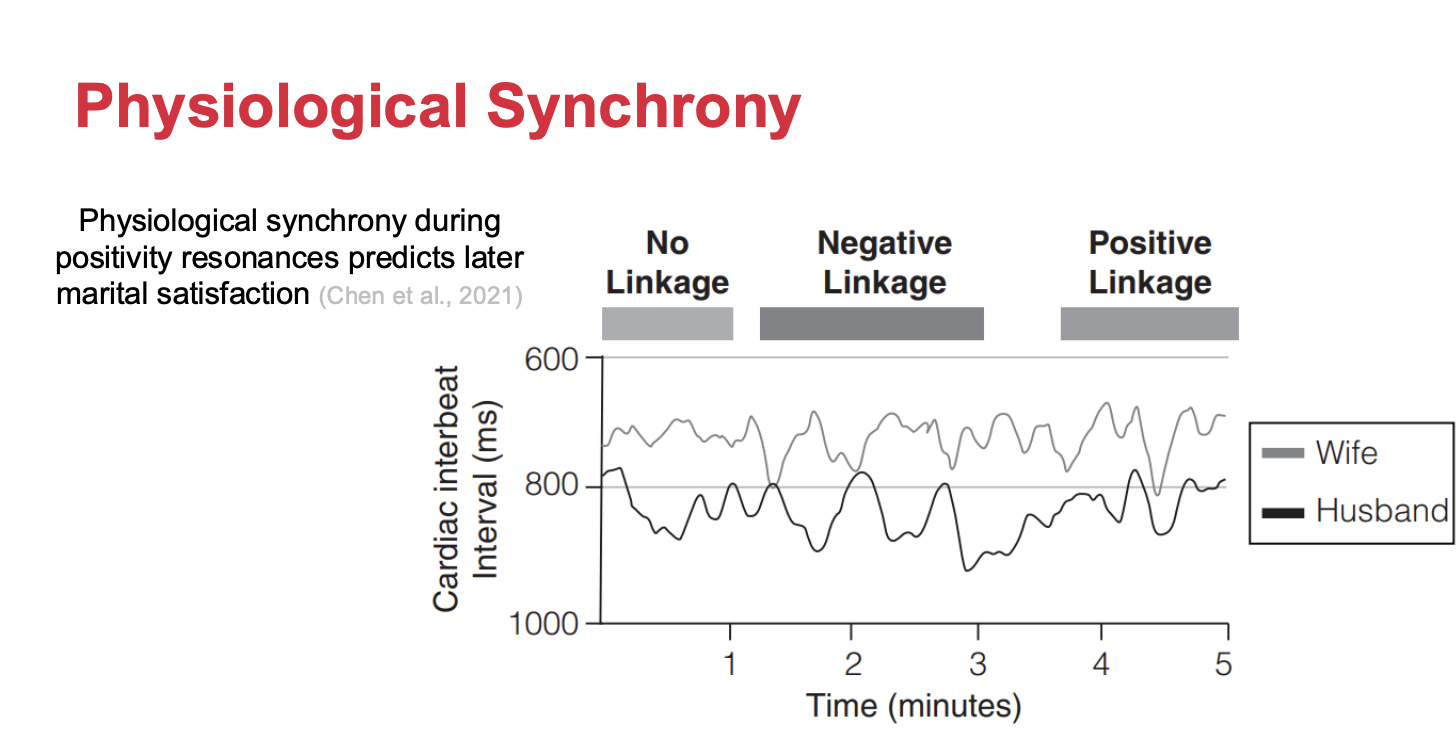
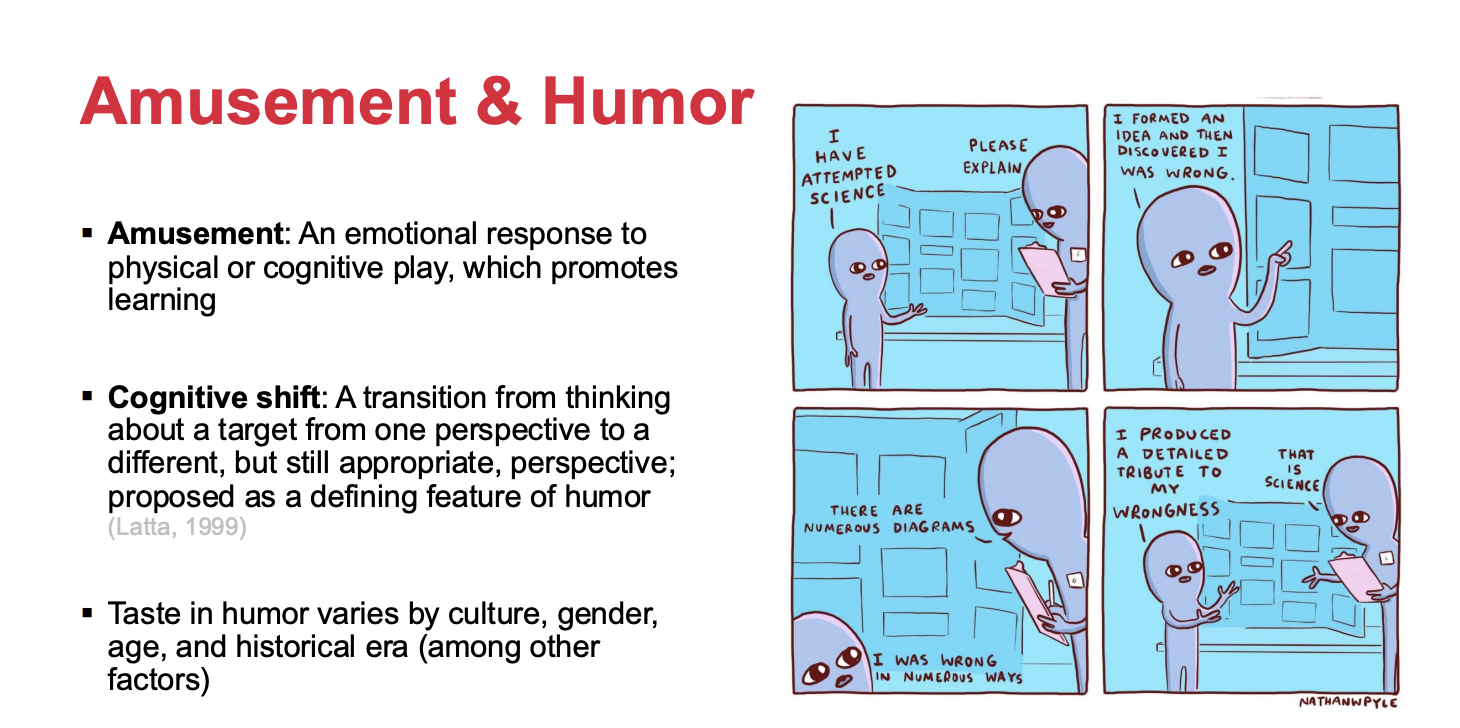
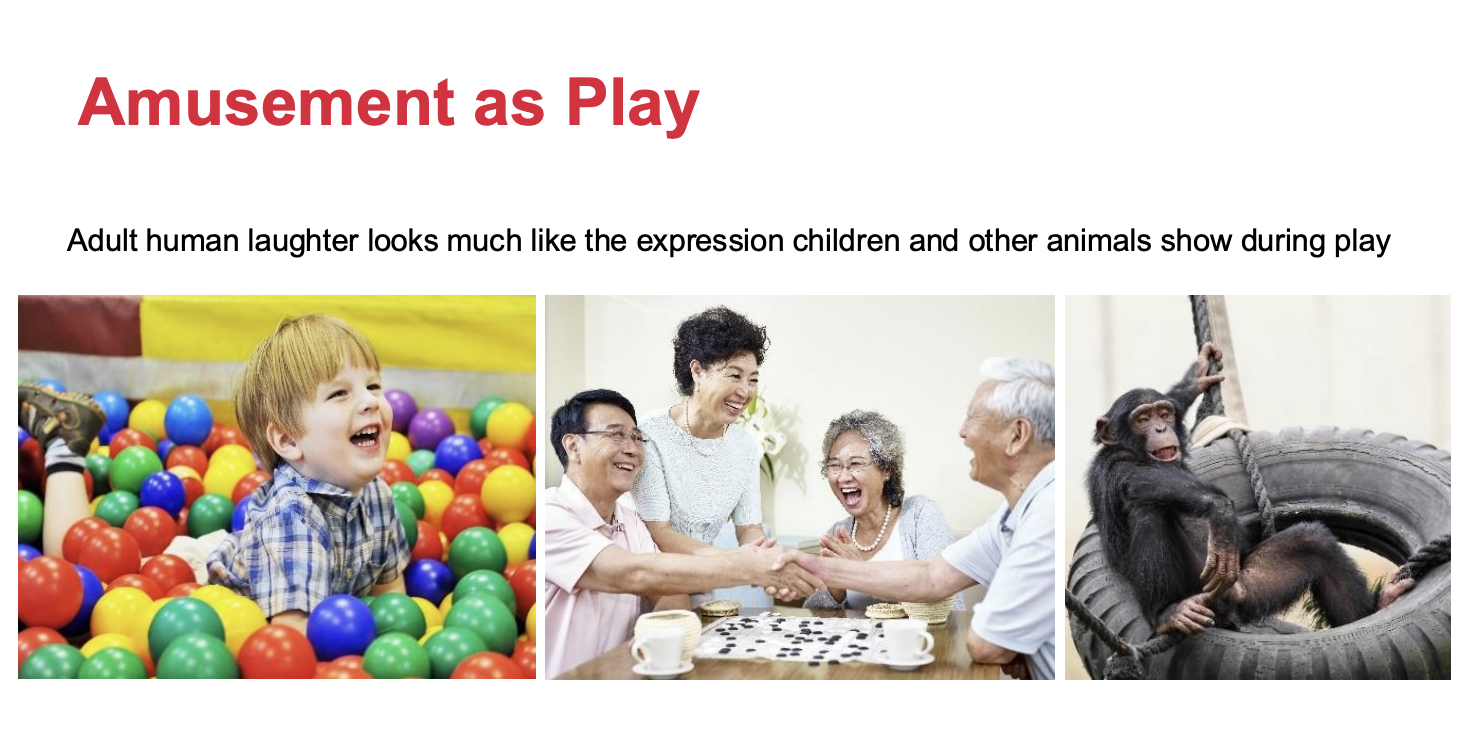
Children need to play because its a way they learn about the world
Exploring ideas and relationships
Amusement is how we experience joy and laughter, often leading to deeper connections with others
